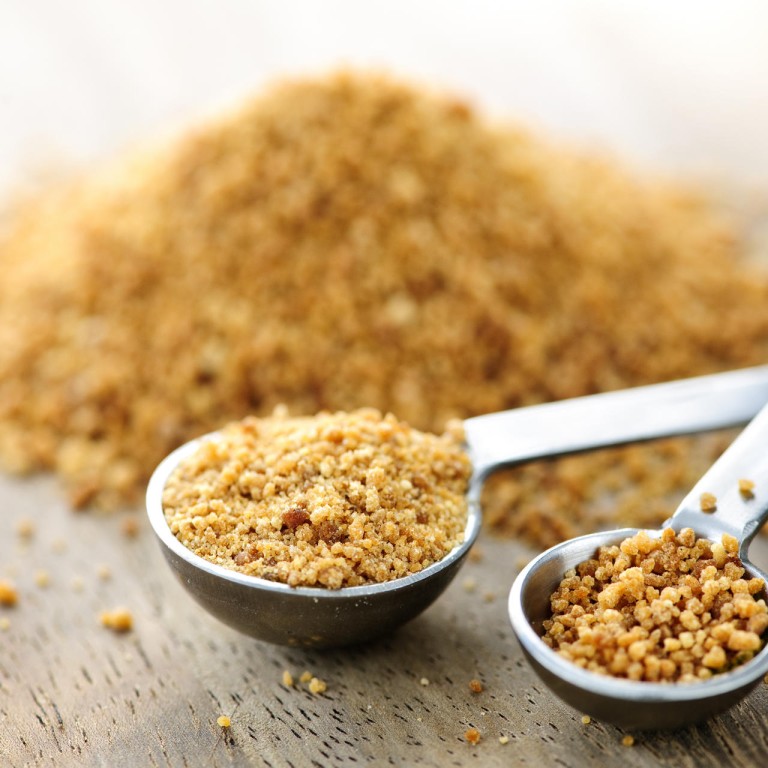
Are sugar alternatives really a healthier option?
There are countless sugar alternatives on the market, but are these so-called natural sweeteners better for you ? Sasha Gonzales finds out
There's no denying that the world's addiction to sugar is growing. We are consuming more sweetened drinks, confectionary and other sugar-laden packaged foods than ever before - proof that we can't get enough of the white stuff.
"Never before, in the history of mankind, have so many kilograms of sugar - and all its artificial and alternative substitutes - been consumed per capita," says Adam Friedman, a naturopathic physician from the Integrated Medicine Institute in Hong Kong. "Don't think you're addicted? Try going without simple carbohydrates for two weeks and see how you fare. Pretty soon you'll start to experience intense cravings and withdrawal symptoms in the form of headaches and irritability."
During the past few years, however, there has been a growing interest in natural sugar alternatives, as people try to wean themselves off white sugar in a bid to eat healthier. We are becoming more aware of the health dangers associated with consuming large amounts of refined carbohydrates. Obesity, type 2 diabetes, liver stress and cancer are just a few that come to mind, but sugar is also thought to be a major culprit in Alzheimer's disease, says Susie Rucker, a nutritional therapist at Body with Soul in Singapore. "It has been shown to slowly kill the dendrites in the brain. Dendrites play an important role in the processes of learning and memory. So sugar literally steals your brain power."
It's a good thing that more of us are seeking healthier alternatives to sugar, but shopping for the right kind has never been more confusing. Visit any big supermarket today and you'll notice shelf upon shelf of sugar alternatives. Not just artificial sweeteners, but naturally derived products such as coconut sugar, date sugar, agave nectar, stevia, raw honey, xylitol and maple syrup, each claiming to be better than the demonised white option.
"Ideally, we should all aim to go sugar-free, but of course that's not possible," says Friedman. "Sugar addiction is tough to beat and maybe you're just not ready to give it up yet. So if you are looking for a healthier way to indulge your sweet tooth, you should choose your natural sweeteners wisely."
In general, the less processing a product goes through to achieve its sweetness the better it may be, Friedman says. Stevia is a good example. This shrub, which is native to Paraguay, is said to be 300 times sweeter than sugar, yet has no effect on blood glucose levels and is calorie-free.
"There are three different presentations of stevia. There's the green leaf variety that's been [made] into a powder - this is the least processed and the most highly recommended. Then there's pure stevia extract powder, and finally, Truvia, which is a blend of rebaudioside A, the active ingredient in stevia; erythritol, a sugar alcohol; and other natural flavours that the manufacturer isn't willing to divulge. Each of these products is derived from the stevia plant, yet each has added degrees of processing to produce the final product."
The next time you are shopping for natural sugar alternatives, Friedman suggests going for these options, which he says are better (or "less bad") than white sugar in a number of ways. However, it is important to remember to consume high-GI natural sugars like honey and maple syrup in moderation, as these can cause blood sugar levels to spike and crash, and, because they are high in calories, consuming excessive amounts can contribute to obesity.
What should replace your sugar?
Green leaf stevia powder
Pros: has undergone the least processing, has zero calories, zero carbohydrates and zero GI (Glycaemic Index) Cons: is slightly bitter, and an acquired taste
XylitolPros: it does not cause tooth decay. Classified as a sugar alcohol, it is a natural substance found in fruits and vegetables (and even our bodies produce it in small amounts). It looks and tastes like sugar but has far fewer caloriesCons: may cause stomach problems and diarrhoea if consumed excessively. Fruit sugars (for example, date and coconut) Pros: as these are less processed they are more like real food or quite close to their natural state
Cons: date sugar does not dissolve or melt easily and therefore is not suitable for drinks or recipes that involve cooking
HoneyPros: honey is high in B vitamins, vitamin C, antioxidants and minerals like calcium, copper, iron, magnesium, manganese, phosphorus, potassium and zincCons: high in fructose, which is associated with obesity and other health issues. Its GI is highly variable
Maple syrupPros: pure maple syrup, made from the sap of red, black or sugar maple trees, is a minimally processed food. It is also rich in antioxidants and minerals like iron, calcium, zinc, manganese and potassiumCons: has a high GI and a distinctive taste. Sasha Gonzales

